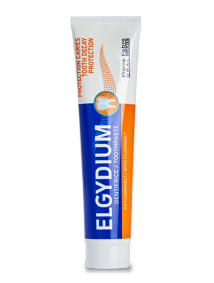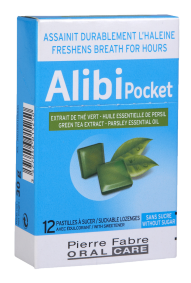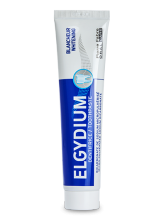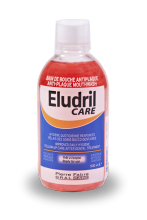Why resign yourself to bad breath?
Why does our breath sometimes smell bad?
The mouth contains bacteria that feed on the proteins found in our diet, amongst other things. These proteins are broken down by the bacteria, producing foul-smelling volatile sulphur compounds (VSCs), which have a ?rotten egg? odour. The compounds are then exhaled, causing halitosis.
The concentration of VSCs in the breath can be measured objectively using a device called a halimeter.
Many bacteria of this type are found in the tiny folds on the surface of the tongue.
What are the causes of bad breath?
Causes concerning oral health
The origin of 90% of cases of bad breath is in the mouth itself. The most common causes concerning the mouth and teeth include:
- poor oral hygiene,
- deep tooth decay and dental abscesses,
- wounds in the mouth,
- infections in the mouth (oral thrush),
- food stuck between the teeth,
- dentures not removed at night, or cleaned irregularly,
- gingivitis and periodontitis, two gum diseases,
- dry mouth (related to smoking, certain types of medication or dehydration for example).
Causes related to the ear, nose and throat
Some diseases of the ear, nose and throat may be the cause of bad breath:
- acute pharyngitis,
- infection of the tonsils and throat infections,
- sinusitis,
- chronic bronchitis,
- in children, a foreign body in the nose or sinuses.
Other causes of bad breath
There are other causes of bad breath:
- food containing sulphur derivatives (onion, garlic, cabbage, curry, coffee, etc.),
- prolonged fasting or high-protein diets,
- excessive consumption of alcoholic drinks,
- certain gastrointestinal diseases, for example gastroesophageal reflux disease,
- a liver problem,
- diabetes,
- chronic kidney disease.
Should you consult your dentist if you have bad breath?
When should you rapidly consult your dentist in the event of bad breath?
Bad breath is, in itself, a reason to consult your dentist. If the oral causes for bad breath have been treated but symptoms persist, it may be necessary to consult your GP. If, in addition to bad breath, you have swollen or bleeding gums, make an immediate appointment with your dentist.
When should you rapidly consult your doctor in the event of bad breath?
In any event, you should rapidly consult your doctor if, in addition to bad breath, you have one of the following symptoms:
- pain in your mouth, teeth, throat or sinuses;
- a high temperature;
- a runny nose or post-nasal drip;
- a cough.
If you also suffer from diabetes, gastroesophageal reflux, chronic kidney disease or liver disease, you should consult your doctor.
What does the dentist do in cases of bad breath?
Questionnaire for bad breath
The dentist may ask you the following questions to pinpoint the causes of bad breath:
- When do you get bad breath, and since when?
- When was your last appointment with the dentist, and when was your last tartar removal?
- What is your perception of the odour, and what is the perception of people close to you? Have you already undergone a test with a halimeter?
- Do you have a dry mouth?
- Have you already tried any treatments?
- What is your lifestyle like (occupation, eating habits, smoking, oral hygiene)?
- Do you suffer from other diseases? What are they? Are you taking any medication? What is it?
Treatment for bad breath
The dentist will carry out a complete check-up: teeth, gums, mucous membranes and salivary glands. They will also assess how your breath smells when you exhale through your mouth or through your nose.
If the origin of bad breath is found to be in the mouth, the dentist can provide the necessary treatment: tartar removal, treatment of tooth decay, gum disease, dry mouth or mouth ulcers for example.
They will also give advice about oral hygiene and may recommend certain alcohol-free mouthwashes (which will not dry out the mouth). These are only effective for a short period, but they prevent the mucous membranes from drying out.
What can you do to freshen your breath?
1. Flawless oral hygiene on a daily basis
In any event, you should rapidly consult your doctor if you have other symptoms alongside bad breath, such as:
- pain in your mouth, teeth, throat or sinuses;
- a high temperature;
- a runny nose or post-nasal drip;
- a cough.
If you also suffer from diabetes, gastroesophageal reflux, chronic kidney disease or liver disease, you should consult your doctor.
2. Clean your dentures regularly
Dentures may be porous and become a breeding ground for bacteria. Follow your dentist's advice on how to clean and disinfect them.
3. Regular dental treatment
Visit your dentist once or twice a year for tartar removal, depending on how quickly the tartar builds up. At the same time, the dentist will assess the health of your teeth and gums.
4. Avoid certain food
Avoid eating garlic and onion. Also limit your consumption of protein (meat, fish, eggs). Protein reduces the natural acidity of the mouth and stimulates the production of VSCs. Do not drink too much coffee or alcohol. In addition, consider giving up smoking!
5. Be sure to stay well hydrated
To avoid having a dry mouth, a contributing factor to bad breath, make sure you drink at least 1.5 litres of water a day. This will allow you to produce enough saliva to reduce bacterial growth and dilute the VSCs. If necessary, you can chew gum or use mentholated toothpastes, although these will only mask bad breath.
Fresh breath
Tackle the sources of bad breath, such as tartar, neglected interdental spaces and coated tongue: find a solution to every cause.
See the program




